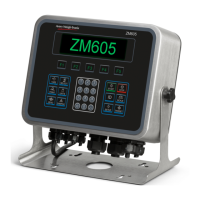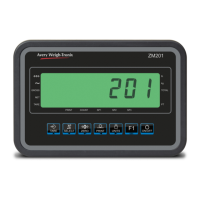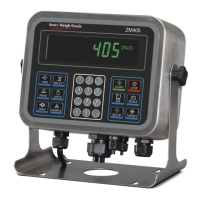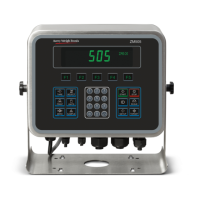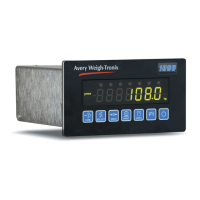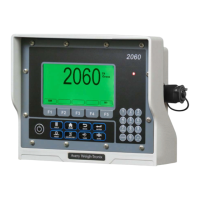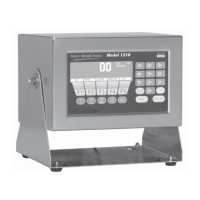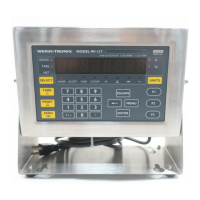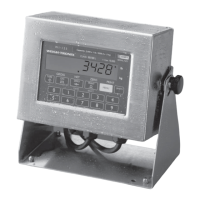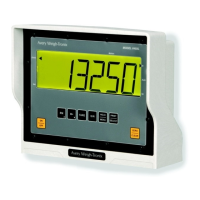Do you have a question about the Avery Weigh-Tronix ZM615 and is the answer not in the manual?
Manual structure, conventions, and page numbering.
Explains display formatting for keys, messages, and annunciators.
Defines symbols (Caution, Note) for warnings and important tips.
Guidance and warnings related to the installation process.
Safety procedures for battery handling, replacement, and disposal.
Requirements for operating the indicator in wet environments.
Procedures for regular checks, calibration, and safe maintenance.
Recommended and prohibited methods for cleaning the indicator.
Importance of user training and ergonomic setup.
Warning against using sharp objects on the keypad.
Regulatory compliance statements for FCC, Canada, and European standards.
Official product conformity declarations to EU directives and standards.
General description of the ZM615 indicator, its features, and environment suitability.
Lists optional hardware and communication interfaces for the indicator.
Visual representation of the ZM615 indicator's front panel and keys.
Detailed explanation of each key's function on the ZM615 front panel.
Specifications and procedure for powering on the ZM615 indicator.
Guide to using the alphanumeric keypad for data entry.
Instructions for inputting negative values and decimal points.
How to access menus via password and navigate through them.
Methods for safely exiting menus and saving changes.
Procedure for modifying the display's screen contrast.
Initial startup screen and display upon powering the indicator.
Introduction to the indicator's accumulation weighing functionality.
Step-by-step guide for performing gross weighments.
Explanation of net weighing and different tare entry methods.
Detailed instructions for performing net weighments using pushbutton tare.
Step-by-step guide for net weighments using entered tare values.
Instructions for performing net weighments with pre-stored tare values.
How to use softkeys to manage accumulation functions.
Details the PRINT key's role in accumulation and data transmission.
Instructions for using the CHAN key to set the accumulator channel.
Instructions for using the ID key to enter an identification number.
Instructions for using the SETPT key to configure setpoints.
Step-by-step guide for recording individual weighments into the accumulator.
Introduction to User, About, and Audit menus and access password.
Details on Time, Date, Site ID, Seal status, and Archive information.
How to set the date and choose display formats.
Procedure for entering and managing the Site ID.
Information on the indicator's seal status and its effect on configuration.
Explanation of the electronic archive feature for transaction records.
Details on bootloader part number and version.
Details on firmware part number and version.
Details on application part number and version.
How to view the indicator's serial number.
Information on option card type and firmware version.
Viewing IP address, Subnet, Gateway, and MAC address.
Details on license numbers and company names for downloads.
Information on connected scale firmware, serial numbers, and calibration.
Details on viewing counters and printing audit reports.
Common error messages related to the printing process.
Error messages encountered during USB file copying.
Error messages associated with BSQ (scale communication) issues.
Procedure to access the supervisor menu and its password.
Instructions for editing, printing, and resetting preset tare values.
Settings for accumulation parameters like Print Total and Total Format.
How to clear accumulated totals for the active channel.
Selecting ports (1, 2, USB) for printing reports.
An example display of a printed preset tare report.
| Manufacturer | Avery Weigh-Tronix |
|---|---|
| Product Name | ZM615 |
| Material | Stainless Steel |
| Protection Rating | IP69K |
| Interface | Ethernet |
